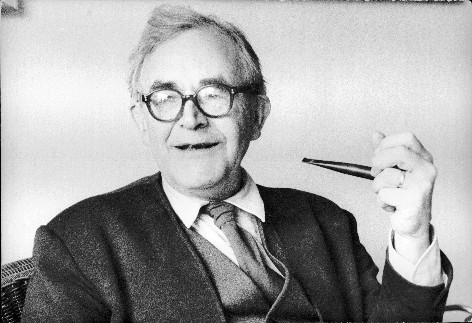See the original post to see what this is about.
Leithart says that the Bible speaks not only of spiritual things, but also hair, blood, sweat, entrails, menstruation, and genital emissions. Theologians on the other hand (except for perhaps Augustine) rarely make any mention of these. It’s a blanket statement intended to shock, of course, but is it true nonetheless? Are theologians from another planet? Let’s find out…
In this round: Karl Barth (1886-1968)

According to Google Books, these words occur X number of times in his printed works:
- hair – 64
- sweat – 19
- entrails – 0
- menstruation – 1?
- genital emissions – 11?
Despite some of the low scores, Barth actually does pretty well. He echos the same sentiment as Leithart, that God doesn’t just care about mystical, spiritual things, but also our bodies, the earth, and the whole of creation.
…we have the old Testament with so many tangible things, so that we see that the Gospel is not purely a spritual thing, merely for soul and heaven. Rather, it is for soul and BODY, heaven and EARTH, inward and OUTER life. There is no hair on my head that is not an interesting thing to God!
-Karl Barth, Table Talk, p.32
He rejects Platonism and gnosticism as detrimental to Christianity:
Eternal life as it is applied to man by this power is the declaration and pledge of his total life-exaltation, from which not a hair of his head or a breath that he draws can be excluded…and so the abstractly spritual life-exaltation at which they aim, omitting the outward aspect of man, his flesh and blood, either in neutrality or in scorn, can result only in self-deception as to the totality of his imprisonment in and with his actual life.
-Karl Barth, Church Dogmatics, Volume IV.2, p.317
He talks about how good Bible study is a lot of hard work:
True exegesis involves, of course, much sweat and many groans. Even so, the extent to which the commentator will be able to disclose the Spirit of Christ in his reading of Paul will not be everywhere the same.
-Karl Barth, The Epistle to the Romans, p.17
And mentions in passing that the sowing of seed is a better analogy for the kingdom of God than sex, since it doesn’t involve our own wills so directly. The seed growing in the ground is more hidden and mysterious. (This passage was long so I didn’t include it here. I came across it because he uses the word semen.)
Stay tuned for the straight dope on 6 other theologians and finally the canon itself!
